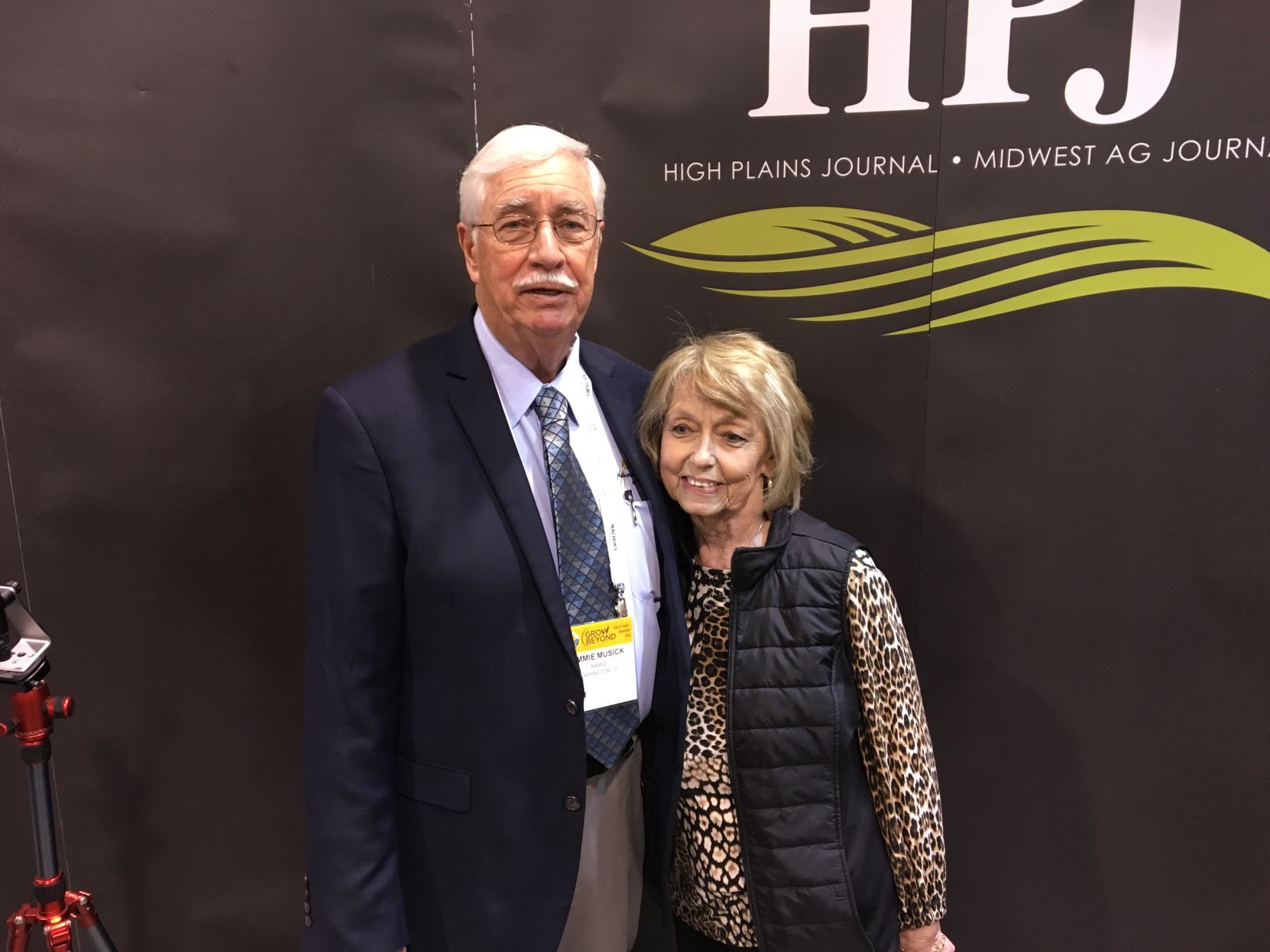National commodity groups discuss policy at Classic

The 2018 Commodity Classic, Feb. 27 to March 1, in Anaheim, California, brought corn, soybean, wheat and sorghum farmers from all corners of the United States together with agricultural equipment manufacturers to discuss policy and issues of the day.
At the top of everyone’s lists were trade agreements that can provide markets for American agricultural production, as well as farm policy that can provide a safety net for farmers in the down economy.
Association of Equipment Manufacturers
The downturn in the agricultural economy has affected ag equipment manufacturers recently but in the last few months AEM members felt bullish about upticks in combine sales and four-wheel drive tractors sales (34 percent and 9 percent, respectively). However, with the announcement of President Donald Trump’s recent U.S. steel and aluminum tariffs, there is some concern for them. A trade war targeting U.S. commodities could mean fewer equipment sales to farmers.
Additionally, AEM is working with U.S. House and Senate leadership on policy to direct the Federal Communications Commission to bridge the gap in internet connectivity in rural America. The goal is to have 90 percent connectivity coverage by 2025 across the country, further allowing farmers to use the latest technology for their equipment.
Looking to the future needs of its members, though, the AEM is partnering with the Equipment Dealers Association to inspire and educate the next generation of equipment technicians. They will offer high school technical teachers partial scholarships to Curriculum for Agricultural Science Education courses this summer. The courses certify teachers in equipment-specific courses, which can inspire students to think about careers in the dealerships of tomorrow.
American Soybean Association
Hard economic times and trade negotiations were on the minds of soybean farmers. ASA Chairman Ron Moore spoke on the economic stakes of postponing a 2018 farm bill.
“The economic skies are still cloudy,” Moore told reporters. “We’ve seen a drop in net farm income of 40 percent in the last year and it’s dropped 50 percent since 2013.” That’s why, he added, farm bills aren’t written for the good times, but created for the bad times. Included in any farm bill should be a strong safety net using crop insurance and Title I that provides for the needs of research, bioeconomies, a robust export program and conservation.
Soybeans and soy products account for more than 60 percent of the crop exports of the U.S. The North American Free Trade Agreement quadrupled soybean exports to Mexico, making it the No. 1 customer for soybean oil, meal and whole soybeans.
The topic of assessing tariffs on aluminum and steel imports, which Trump announced in the middle of Classic, further concerned soybean farmers. Soybeans exports would likely feel the brunt of any retaliations from China.
National Association of Wheat Growers
Wheat growers are facing tough times right now in the U.S. Acreage is down, prices are down and now more than ever they need a strong farm bill safety net and trade agreements to provide export markets for their crop.
NAWG President Jimmie Musick of Sentinel, Oklahoma, said nationwide, low commodity prices that do not cover the cost of crop inputs have wheat growers clamoring for a 2018 farm bill that offers a sense of security to their lenders. Another key part of the farm bill would be funding for the Market Access Program and the Foreign Market Development program, both of which are key to the work the promotion group U.S. Wheat Associates does on behalf of American wheat growers. Making sure those are funded can help keep existing wheat markets and develop emerging markets in the future.
Fair trade rules and laws are another way to open up markets abroad for U.S. wheat. NAWG approved their policy resolutions at the NAWG Board Meeting during Classic. Chief on the list was a resolution to urge the Trump Administration to avoid imposing any trade barriers based on national security concerns because of the threat of retaliation against wheat exports in countries affected. Less than 24 hours later, Trump announced tariffs on aluminum and steel imports.
National Corn Growers Association
Ethanol and trade were the lead concerns for NCGA. As policy discussions were held, the goal was to do no harm to current ethanol related policies.
“Ethanol has grown from 4.5 percent to 30 percent of corn demand since 1990,” said NCGA President Kevin Skunes, a farmer from Arthur, North Dakota. “Ethanol not only provides an important market for corn it benefits our nation’s economy and energy security by creating nearly 360,000 jobs and displacing 527 million barrels of foreign oil.”
NCGA joined with other national agricultural organizations to meet with Trump in Washington, D.C., in the midst of Commodity Classic in order to review how successful the Renewable Fuel Standard has been. The meeting included senators from agricultural states, officials from the Environmental Protection Agency and representatives from the United States Department of Agriculture. Skunes stressed that no deal was made at this meeting.
“Here is where corn farmers stand on RFS,” Skunes said. “Our farmers can not afford any deal that undermines the demand for ethanol. We continue to believe the elusive win-win solution involves regulatory parity for E-15 and higher blends of ethanol. Essentially allowing year-round sales of E-15 and improved transparency in the RIN marketplace.”
Corn growers do not favor putting a cap on Renewable Identification Number values because it hurts farmers by reducing ethanol consumption, thus pushing already low corn prices even lower.
NCGA stated its support for NAFTA and its importance to corn farmers.
“We must protect NAFTA,” Skunes said. “Agriculture’s future depends largely on our ability to sell to foreign markets. Over $43 billion in food and agricultural products are exported to Mexico and Canada. We are already seeing the negative impacts of uncertainty over trade. We must aggressively pursue trade agreements.”
NCGA also favors doubling funding for the MAP and FMD.
National Sorghum Producers
NSP Executive Director Tim Lust spoke about the recent Chinese case accusing the U.S. of dumping sorghum and its implications for growers. Currently NSP is in the first phase of working with the industry to gather information.
“China has been a significant market for our industry,” he said. “It’s been the largest market and a great win-win for our growers and our customers in China.” Lust said from a standpoint of marketing the U.S. has been trading sorghum at a normal level for the last few years.
The United Sorghum Checkoff Program is working to develop new markets for sorghum, both at home and abroad, and trade agreements will be vital to that effort.
“My message is this, that any discussions on trade have a very real and practical and personal impact on farmers and I hope that message is not lost in the overall discussion,” Lust said.
2018 marks the tenth year of the United Sorghum Checkoff Program, a feat that NSP leadership was excited to celebrate at Classic. Since its inception, a recent independent study showed that for every dollar invested in crop improvement, the net return to producers was $8.57. The farm value of U.S. sorghum production increased by an average of $12.6 million per year from 2008 to 2017, for a total of $100.6 million in additional farm revenue. And when you consider the rapidly expanding high-value markets and renewables segment, the checkoff’s investment has enhanced the farm value of sorghum sales by nearly $107.4 million, or a net return to the producer just in this area of nearly $11.60 for every dollar invested.
For further coverage of the 2018 Commodity Classic, visit www.hpj.com/commodityclassic.
Jennifer M. Latzke can be reached at 620-227-1807 or [email protected]. Doug Rich can be reached at 785-749-5304 or [email protected].


